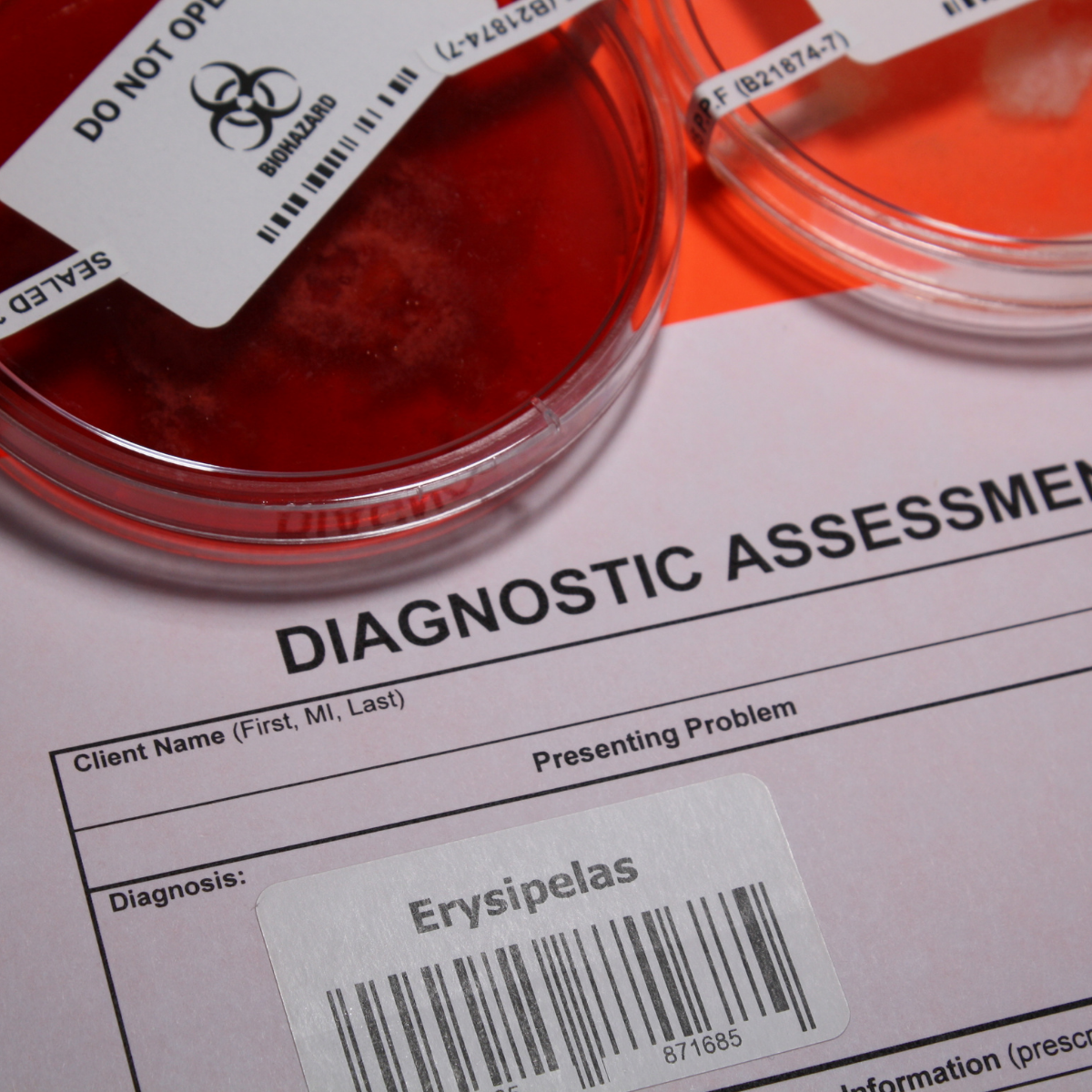Causes and risk factors
Infection with group A Streptococcus bacteria is the most common cause of erysipelas. Infection can occur due to minor trauma, insect bite, or dog bite. Eczema, surgical incision, ulcers can lead to infection. Risk factors include infants, children, and elderly people. Immune deficiency, obesity, diabetes, alcoholism, skin ulceration, fungal infections are some of the predisposing factors. Impaired lymphatic drainage, intravenous drug use also causes the disease.
Clinical presentation
The symptoms include body pain, malaise, chills, and moderate fever. A bright red spot appears first near a fissure at the angle of the nose. This spreads to form a tense, sharply demarcated, glistening, smooth, hot area. The lesion is somewhat edematous and can be pitted slightly with the finger. Vesicles or bullae occasionally develop on the surface. The lesion heals without scar formation. The disease may complicate any break in the skin that provides a portal of entry for the organism. Lymph node enlargement can be observed.
Investigation
Medical history by the patient and clinical examination by the doctor helps in diagnosis. Routine hemogram, blood culture is recommended. Skin biopsy may be advised.
Treatment
Bedrest with the head of the bed elevated is advised. Intravenous antibiotics effective against group A β-hemolytic streptococci and staphylococci are indicated for the first 48 hours. Symptomatic treatment such as analgesics, antipyretic may be required. Proper hydration is necessary. Saline wet dressings and cold compresses contribute further to the treatment. Erysipelas, if untreated, may result in death from extension of the process and systemic toxicity, particularly in the young and in the aged.
Other Modes of treatment
The other modes of treatment can also be effective in treating erysipelas. Homoeopathy is a science which deals with individualization and considers a person in a holistic way. This science can be helpful in combating the symptoms. Similarly, the Ayurvedic system of medicine which uses herbal medicines and synthetic derivates is also found to be effective in treating erysipelas.






























